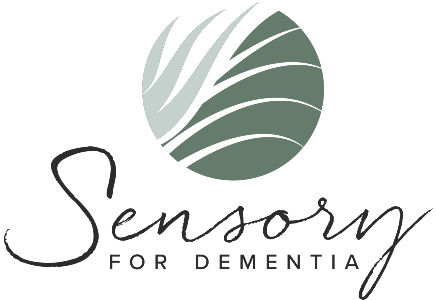
The terms “dementia” and “Alzheimer’s disease” are often talked about as if they mean the same thing. Dementia is not always Alzheimer’s disease, but Alzheimer’s disease is always dementia. What?! Talk about confusing!
Dementia is an umbrella term while Alzheimer’s is a specific disease. To understand the umbrella term concept, let’s start with a familiar example:
Umbrella Category: Fruit
Consider a bowl of fruit. There are pears, bananas, pineapple, and fresh-picked blueberries inside this bowl. Fruit is the overarching umbrella term for all the items inside the bowl.
You can have a bowl of fruit that has zero bananas. Regardless, you can still call the contents “fruit”. Fruit is not always bananas, but bananas are always fruit. Fruit can be oranges, cherries, and grapes too.

Dementia vs. Alzheimer’s disease:
What is the difference?
Let’s apply this visual image of an umbrella to better understand the difference between dementia and Alzheimer’s disease.
Dementia is a general term that describes a group of symptoms associated with decreased cognition and impacted daily function:
- memory loss
- changes in sensory processing
- decreased focus and attention to task
- changes in language and communication skills
- difficulty with problem-solving, judgment, and decision-making
- changes in personality, behavior
Dementia-related symptoms might accompany certain physical conditions or diseases.
Umbrella Category: Dementia
Dementia can be vascular, Alzheimer’s disease, frontotemporal, and Lewy body to name a few. Alzheimer’s disease is the most common type of dementia. However, not everyone with dementia has a diagnosis of Alzheimer’s disease (just like not every piece of fruit in your fruit bowl has to be a banana).

Dementia is not a normal part of aging. Neither is Alzheimer’s disease. Here is a continuum that outlines the difference in severity for people who do develop cognitive impairments (Sigward, 2020):

Additionally, dementia is divided into three stages: MILD, MODERATE, and SEVERE. Memory difficulties and sensory changes at each stage make it challenging for a person to initiate and complete daily tasks as they used to do.
Understanding Alzheimer’s
Alzheimer’s is a specific, degenerative brain disease. Over time, changes in the brain cause a decline in cognitive function, impacting things like memory, sensory processing, and emotional regulation. Brain changes include:
- Death of the brain’s nerve cells (neurons) & brain shrinkage
- Development of plaques and tangles that collect between and inside neurons; plaques and tangles make it challenging for neurons to send signals and communicate with one another
- Chronic inflammation
- Decreased blood flow and oxygen
- Insulin resistance (“Type 3 Diabetes“)
Researchers are trying to figure out which of these changes cause the disease and which are the result of the disease.
A note for healthcare professionals:
The term “dementia” has been replaced with “Mild or Major Neurocognitive Disorder” in the DSM-5 (Diagnostic and Statistical Manual of Mental Disorders). However, “dementia” is still widely used clinically and publicly, including within the criteria developed by the National Institute on Aging and the Alzheimer’s Association. Here’s how documentation of the same clinical presentation will look different in each scenario:
| Diagnostic Criteria Source: | Diagnosis: |
|---|---|
| DSM-5 | “Major or minor neurocognitive disorder due to Alzheimer’s disease” |
| National Institute on Aging and the Alzheimer’s Association | “Dementia due to Alzheimer’s disease” |
Learn more about this implications of this change in the DSM-5 here. While occupational therapy practitioners do not diagnose, it is important to be aware of the terminology that may be seen within medical records to understand each chart review.
“Occupational therapy practitioners help people with [dementia] and their caregivers to live life to its fullest by adapting the environment and focusing on what they can do to maximize engagement in activity (occupation), promote safety, and enhance quality of life.”
American Occupational Therapy Association, 2011
Reference:
Sigward, T (2020, June 22). Cognitive impairment in older adults: An overview [Webinar]. Greater Cincinnati Alzheimer’s Association Education Program, Cincinnati, OH, United States.
DISCLAIMER: Although I am an occupational therapist and the information compiled is based on years of training and clinical experience, this is NOT a place for skilled therapeutic intervention. The ideas presented on this website and in products are for informational/educational purposes only and are not medical advice.
A website does not replace an individualized plan of care developed as the result of assessment, clinical observation, and collaboration between therapist, client, and care partner(s). If you are concerned about the cognitive, sensory, or functional abilities of yourself or someone you know, then you should talk with your physician or your therapist.
